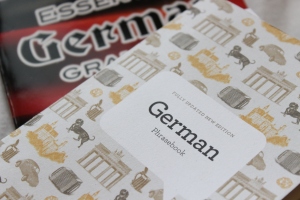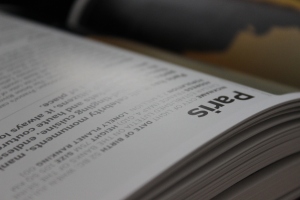 Friends come in all shapes and sizes, but the ones made abroad last a lifetime. In Amsterdam, I hung out with au pairs exclusively. This year, it’s a fun mix of students, teachers, au pairs and expats. However, there’s something special about an au pair friend (so special that you look at your au pair friends like you’re going to eat them, as I do in the picture on the left). Thanks to Easter holidays, and therefore general partying, socialising and networking, I’ve really been slacking here-so I thought a post to celebrate the ones who distracted me the most was in order. Without further ado, XXX reasons why au pair friends rule all friends
Friends come in all shapes and sizes, but the ones made abroad last a lifetime. In Amsterdam, I hung out with au pairs exclusively. This year, it’s a fun mix of students, teachers, au pairs and expats. However, there’s something special about an au pair friend (so special that you look at your au pair friends like you’re going to eat them, as I do in the picture on the left). Thanks to Easter holidays, and therefore general partying, socialising and networking, I’ve really been slacking here-so I thought a post to celebrate the ones who distracted me the most was in order. Without further ado, XXX reasons why au pair friends rule all friends
- Kid stories. Only other au pairs know how it warms your heart to receive a self portrait from a five year old, or to hear a baby say their first word.
- Culture shock. Some of us don’t even know we’re in its midst, some of us handle it better than others, but it’s always better not to go it alone.
- Travel opportunities. When the year is over, you can visit each other at home!
- Poking fun at the local people together. Now, of course you became an au pair to experience a new culture. However, the deeper we dive into our host countrys’ customs, the weirder things get. Complaining about the natives is, in my opinion, a normal part of culture shock (but not necessarily one you’ll want to share with your host parents!).
- #aupairproblems. We all know that some of our struggles aren’t so real, but they’re ours. (top ten au pair problems coming soon).
- Getting to know your city is easier when you’ve got back up with you.
- Free time is best spent outside of your room, house and the world of childcare.
- Crying together. From parties to host families to kids and friends, the drama involved in being an au pair is legit,
- Laughing together. After a long week of diapers, it’s easy to feel so off your rocker that you burst into a laugh attack as soon as the weekend starts. When you have your bestie by your side sharing the sentiment, you might look slightly less nuts.
- Growing up together. Whether you’re 17 or 27, an au pair year teaches you about a world you’ve probably never seen, socially, geographically, emotionally, and all the other -allys. Just when you think you’re an adult, becoming an au pair pushes you to mature much, much more, causing those who do so with you become just like childhood friends.
 Those who only want to travel have options on a strict budget have options; WWOOFing, volunteering, teaching,and work-and-travel programs are all rapidly gaining popularity. Au pairing, however, offers the opportunity to work closely with children.Personally, I didn’t become an au pair just to travel. I love children and also wanted the opportunity to use something I enjoy as a means of supporting myself. I hope (and believe) that this sentiment is shared with many au pairs. Often, host families choose us because they hope we can teach their kids French/German/English/Klingon etc., which makes bonding difficult. So, we want to be close to “our” kids, but what’s an au pair to do when said kids can’t don’t speak his/her language?
Those who only want to travel have options on a strict budget have options; WWOOFing, volunteering, teaching,and work-and-travel programs are all rapidly gaining popularity. Au pairing, however, offers the opportunity to work closely with children.Personally, I didn’t become an au pair just to travel. I love children and also wanted the opportunity to use something I enjoy as a means of supporting myself. I hope (and believe) that this sentiment is shared with many au pairs. Often, host families choose us because they hope we can teach their kids French/German/English/Klingon etc., which makes bonding difficult. So, we want to be close to “our” kids, but what’s an au pair to do when said kids can’t don’t speak his/her language? Hooray, it’s our very first poll! I want to thank all those of you who follow AuPairAnswers through email and WordPress, and also those of you who check up on the blog through the web. In order to make AuPairAnswers more helpful and fun for everyone I’ve made a poll to see what all the au pairs out there would most like to read about. Please take a second to vote, share your ideas in the comments, or email me at: apanswergirl@outlook.com.
Hooray, it’s our very first poll! I want to thank all those of you who follow AuPairAnswers through email and WordPress, and also those of you who check up on the blog through the web. In order to make AuPairAnswers more helpful and fun for everyone I’ve made a poll to see what all the au pairs out there would most like to read about. Please take a second to vote, share your ideas in the comments, or email me at: apanswergirl@outlook.com.  Visas and registration aside, au pairs should keep in mind that there are housekeeping items which, when taken care of early, will make life much easier. So, as a quick, “spring cleaning” themed post, I’ve compiled a list of things I
Visas and registration aside, au pairs should keep in mind that there are housekeeping items which, when taken care of early, will make life much easier. So, as a quick, “spring cleaning” themed post, I’ve compiled a list of things I  Many au pairs choose a host country in order to learn a new language. A second language can improve career prospects, enrich one’s life and broaden one’s horizons. My personal belief is that in knowing a country’s national language and speaking it with locals earns respect and helps an au pair transition from being viewed as a “tourist” to a “cosmopolitan”. However, upon arrival, using your skills can be intimidating, confusing and difficult. Even when you have all the words, sometimes the confidence to say them aloud disappears. As a language lover, I feel everybody deserves the privilege of saying “Hi, my name is X and I can speak two languages”. Or better yet, three/four/five/eleven/one hundred. I want to share with you some of my own tips and tricks for learning a new language.
Many au pairs choose a host country in order to learn a new language. A second language can improve career prospects, enrich one’s life and broaden one’s horizons. My personal belief is that in knowing a country’s national language and speaking it with locals earns respect and helps an au pair transition from being viewed as a “tourist” to a “cosmopolitan”. However, upon arrival, using your skills can be intimidating, confusing and difficult. Even when you have all the words, sometimes the confidence to say them aloud disappears. As a language lover, I feel everybody deserves the privilege of saying “Hi, my name is X and I can speak two languages”. Or better yet, three/four/five/eleven/one hundred. I want to share with you some of my own tips and tricks for learning a new language. Everybody needs a friend. While I’m sure I don’t need to provide evidence to support this, I will anyway. Au pairs need friends because…
Everybody needs a friend. While I’m sure I don’t need to provide evidence to support this, I will anyway. Au pairs need friends because… I had a great time in the Netherlands. I left knowing Amsterdam’s entertainment district like the back of my hand. I visited almost every major city and attended local festivals. My Dutch is good (or at least as good as a non-native’s can get, what with everyone speaking English). However, I passed up on the opportunity to travel around Europe for silly reasons (too much, not interested, no credit card to book tickets). Fortunately, I’m getting a second chance this year. Vienna is very well connected to several major European cities, so I’ve decided to make a travel bucket list this year and hold myself to it. First, some tips for building your own:
I had a great time in the Netherlands. I left knowing Amsterdam’s entertainment district like the back of my hand. I visited almost every major city and attended local festivals. My Dutch is good (or at least as good as a non-native’s can get, what with everyone speaking English). However, I passed up on the opportunity to travel around Europe for silly reasons (too much, not interested, no credit card to book tickets). Fortunately, I’m getting a second chance this year. Vienna is very well connected to several major European cities, so I’ve decided to make a travel bucket list this year and hold myself to it. First, some tips for building your own: